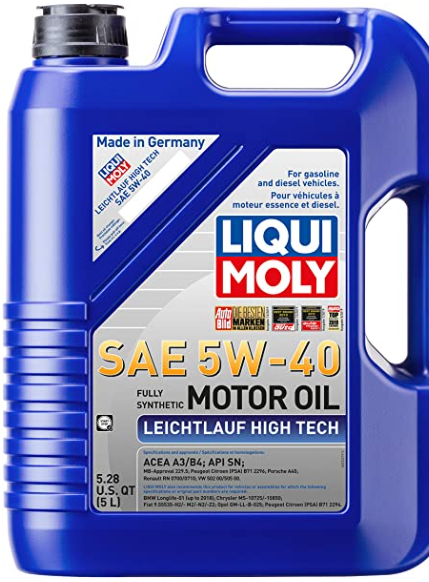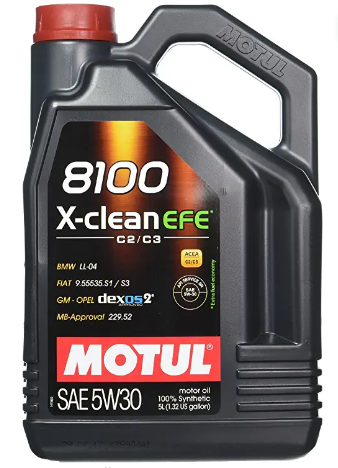
VS

Yeah, it’s delightful to have a new car in your garage.
An incredible journey on the highway. Enjoying the natural sceneries with melody songs. Just a day ahead.
But, stumble to choose the right engine oil between Liqui Moly vs. Motul.
And within seconds, your face turns sparkly to pale.
Read this post to define which oil is better and which you should choose. Liqui Moly or Motul to chase the concern and welcome smooth driving experiences.
Comparison Table Between Liqui Moly vs. Motul
Can’t hold your patience anymore to explore the car. Look at this comparison table to get itsy-bitsy information about the oils at a glance.
| Features | Liqui Moly | Motul |
| Types | Full Synthetic | Synthetic |
| Used for | Gas and diesel engine | Gas and diesel engine |
| Viscosity grade | 5W-40 | 5W-30 |
| Heat Resistance | -25°C to 35°C. | -25°C to 25°C |
| Film strength | Excellent | Average |
| Pressure handling capacity | Excellent | Average |
| Cleaning Capability | Excellent | Average |
| Oil changing interval (Milage) | 5000 miles | 5,000-mile/6-month |
| Compatible vehicles | BMW Cars, Jeeps, Bikes, Mower, Heavy-duty Truck, Boat, etc. | Honda, Kia, Toyota, Hyundai, Subaru, and Nissan |
Overview of Liqui Moly
Liqui Moly is not just a brand for most motorized vehicle owners. It has become a name of trust, reliability, and pure feelings as it supplies quality motor oil for 50+ years.
The company Liqui Moly, won’t treat it just as engine oil. Its petroleum engineers design the oil by keeping in mind your engine, its formation, needs, and the stress and pressure it has to conduct while running on the road.
The oil contains additional detergents to ensure your engine protection, cleanliness, and maximum horsepower. Besides, less fuel consumption and longer oil-changing intervals are a plus.
Since every detail from beginning to packaging is observed about the oil, you’ll get the fresh fluid you deserve.
Benefits
- Offer you fast and efficient lubrication to reduce wear and tear
- Ensure maximum engine performance even in rough weather
- Prolong your engine life with less repair cost
- Release fewer emissions that reduce air pollution
Overview of Motul
Motul is also a name of trust like Liqui Moly. As it also supports the engine oil industry with quality oil since the nineteenth century. So, it has vast experience in the industry and develops engine oil that will fit older, even modern, gasoline or diesel-powered engines.
The Motul 5w-40 is a 100% synthetic engine oil with additional friction modifier molecules. The oil will properly penetrate all the internet parts of the engine. So when your engine works hard, even under extreme weather conditions, it’ll increase film strength.
Due to this higher film strength, your engine will be protected from immature frictional engagement, wear and tear. However, the oil will remain clean even after running higher miles due to its 232°c flash point.
Benefits
- Ensure perfect balance between protection and performance
- Compatible with various engines from BMW to Mercedes
- Keep your engine healthy for longer times
- Long oil changing interval and less fuel cost
A Detail Comparison of Liqui Moly Vs Motul
As you are here, you probably got the basic information about oils. Now, we’ll compare both of the oil’s key features in detail. So that you can easily compare them and define which is better for you and why.
Viscosity grade
You should have a clear idea about the viscosity grade of engine oil. Because it determines the thickness of oil and how fast it flows from the reservoir to the engine components. The higher the viscosity grade, the thicker the engine oil.
Liqui Moly
As the Liqui Moly comes with a 5W-40 viscosity grade, it is relatively thicker. So it takes a few seconds more than Motul oil to flow. But, it is high-temperature resistance for this higher grade.
Motul
On the other hand, Motul comes with a 5w-30 viscosity grade, which is faster flowing and penetrating than Liqui Moly. So it will offer your engine protection and prevent failure.
Heat resistant
You have to consider the heat resistance level while choosing engine oil. It is because your engine has to fight against two types of heat. One is environmental heat, and the other is the engine itself generating heat. So, if the oil can’t withstand high heat, that’ll lower your engine performance.
Liqui Moly
The Liqui Moly 5w-40 grade oil is formulated for hot weather regional areas. So you can use this oil as low as -25°C and as high as 35°C. However, it is not suggested to cross the maximum heat-resistant level. But you can use this oil at a maximum 50°c temperature, not more than that.
Motul
Here, this oil’s lower viscosity is designed for cold weather conditions. So it will permit you to use it from lower at -25°C to higher at 25°C. You can maximum use this oil for the engine at 40°c temperature.
Rust and corrosion resistant
Rust and corrosion are the prime causes of your engine’s lower performance and early damage. The more the oil will fight against rust and corrosion, the longer your engine life will be.
Liqui Moly
It comes with different additional additives to care for your engine. The oil passes the engine’s internal components, which will be as smooth as the batter. So less frictional engagement and fewer rusty metals you find in the engine.
Motul
Though Motul is the lower viscosity oil, in terms of protection from rust and corrosion, it performs as great as Liqui Moly. The additional friction modifier molecules of the oil offer maximum penetrations of the metal components.
Oxidation stability
Since engine oil is a liquid, it’ll vapor under high temperatures. Even the microscopic tiny particles of the engine’s components will make the oil gunk. But that takes time if the oil has higher oxidation and thermal stability.
Liqui Moly
The Liqui Moly fully-synthetic oil is engineered from pure oil. It can offer you higher oxidation stability to reduce oil breakdown and consumption. So once you pour the oil into your vehicle engine reservoir, that’ll be as fresh as new after running a good amount of miles.
Motul
Since Motul oil is a 5w-30 viscosity oil, it has lower oxidation stability. So the oil will break down under less stressful running compared to Liqui Moly. So though it recommends 5000 mileage of oil changing interval, you should check the oil every 1000 miles of running. And if needed, you should change the oil.
Compatible vehicle
Generally, one oil won’t be formulated to use in one vehicle. Instead, engineers focus on different types of engines, their behavior patterns, and their components. So both the Liqui Moly and Motul oils are compatible with versatile vehicles that are gasoline and diesel-powered.
Liqui Moly
No matter what motorized vehicles you own, this oil can be used in most of them. Some of the most notable vehicles are cars, Jeeps, construction trucks, bikes, passenger boats, and many more.
Motul
Most reputed brands recommend Motul oil for their engines, as it has passed API, SAE, and other authority standards. So you can use this oil for your Toyota, Nissan, Hyundai, or Subaru cars, Honda bikes, trucks, dirt bikes, etc.
Related articles
FAQs
Is Motul oil a good oil?
Yes, Motul is as good as it is on its first day. It becomes better daily as it develops with higher additives to use in today’s modern engine.
How long does Motul oil last?
According to Motul, its oil will last a maximum of 3 years with proper maintenance. However, the maintenance isn’t too hard; you just have to store it in a dry place under 40 degrees celsius.
Is Liqui Moly good for your car?
Sure, Liqui Moly is good for your car. Because it ensures maximum protection against wear and tear, performance under extreme weather, and engine longevity. It also reduces oil breakdown and consumption to save fuel costs.
What To Choose Between Liqui Moly Vs Motul
As both of the oils are excellent in their own zone. So it’s challenging to say one is better than the other. Which oil you choose depends mainly on your vehicle’s manufacturer recommendation, engine type, and local weather.
If you consider high-temperature resistance, higher viscosity grade, and maximum performance. Liqui Moly will be your right choice. However, Motul will be your choice considering its lower fuel cost with better performance and as a safeguard.

Hello, I’m Gary. Welcome to my blog.
Complete graduation from Weber State University ( Department of Automotive Technology)
I have been working with automotive for about 17 years. I have a garage in New Jersey.
In my spare time, I love to spend time with my family. Driving new cars is my hobby.